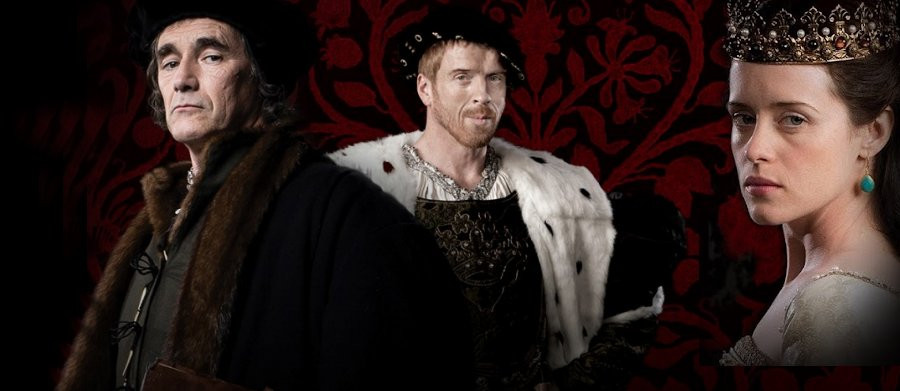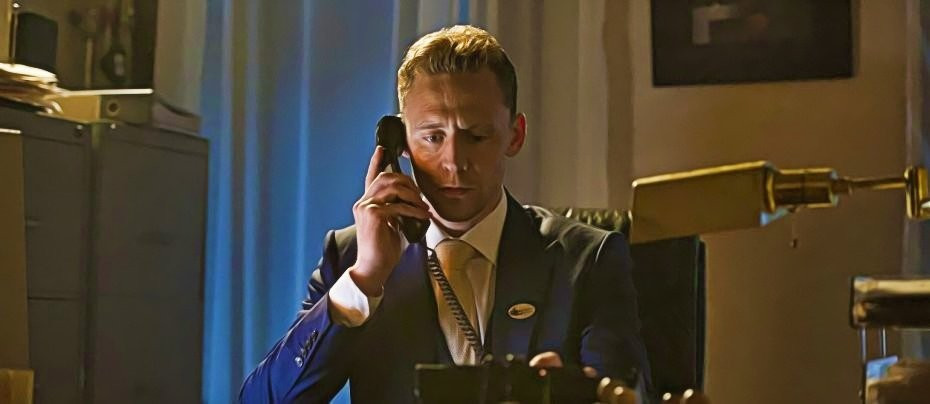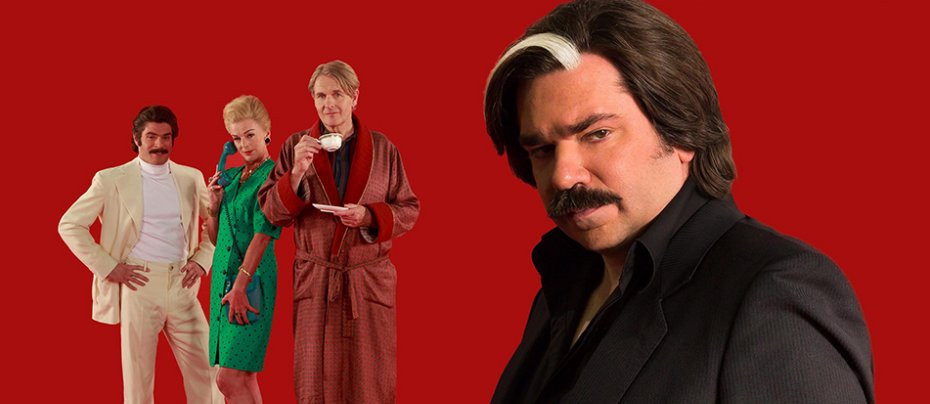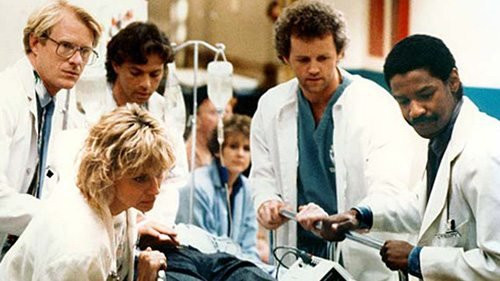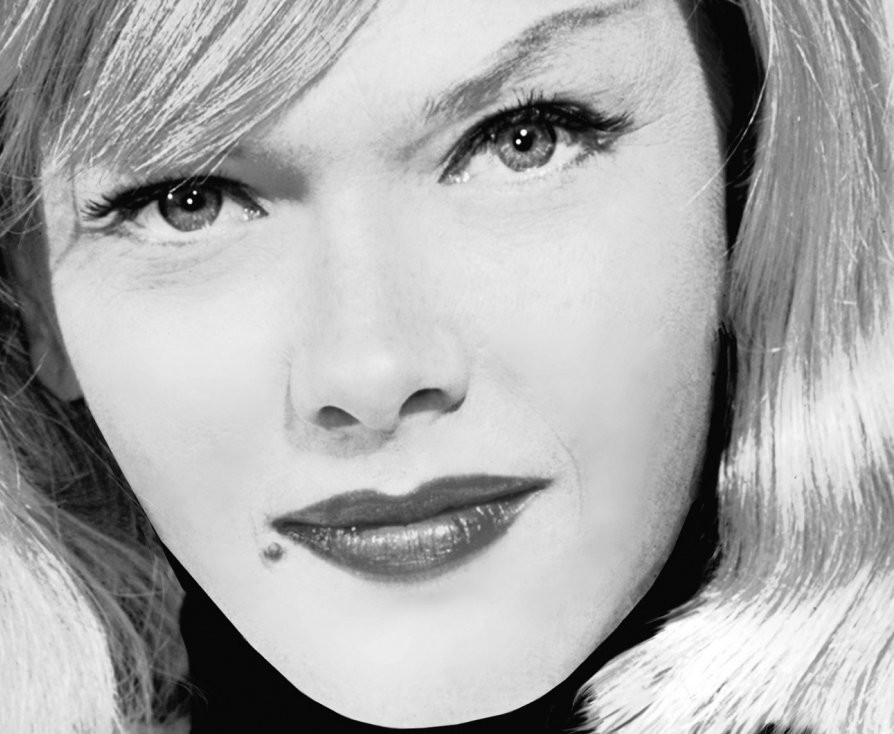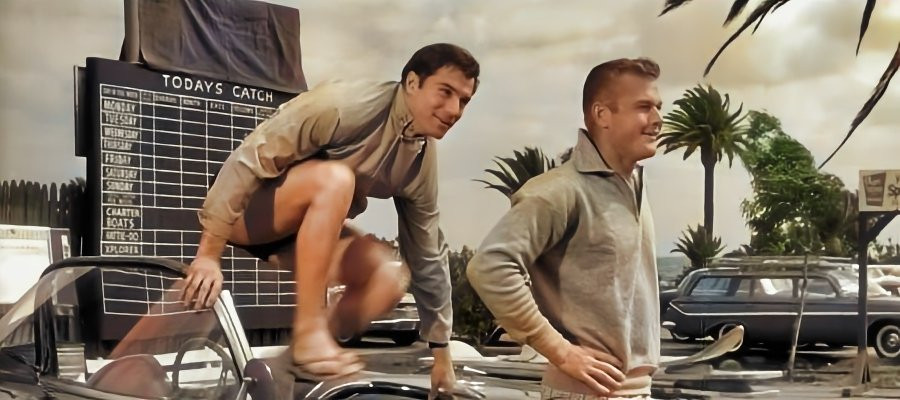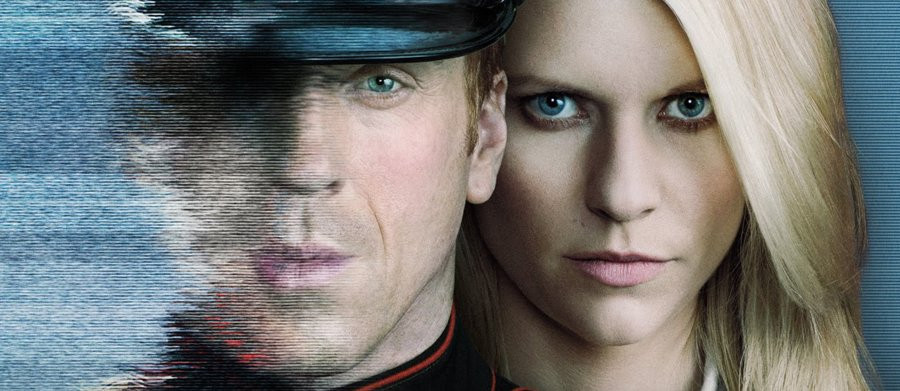
Homeland
2012 - United StatesWARNING: THIS ARTICLE CONTAINS SPOILERS
The problem with reviewing Homeland is that the various seasons, eight in all, sometimes seemed like different shows. The first began with a strong premise, based very loosely on an Israeli drama: had a soldier who became a national hero after being rescued from Islamic terrorists actually been converted by them?
The publicity posed the question "Is Brody friend or foe?" It is surely no spoiler to point out that there could only be one answer to that question if there was to be any sort of a show. Yet it is greatly to the credit of Damian Lewis, who played the former hostage, Sergeant Nicholas Brody, that he conveyed the inner conflict of his character so convincingly that there was real uncertainty about whether he could turn back again. As a result, he retained more audience sympathy than his actions deserved.

People tend to believe what they want to believe, and almost everyone in early Homeland really wants to believe that Brody is a hero. He is fast tracked into Congress with hopes of even more glittering prizes to come. This gives him options he never imagined before.
Almost the only person not willing to buy into Brody is CIA operative Carrie Mathison, played by Claire Danes, but no one wants to listen to her and it does not help that she is literally "off her meds." She is bipolar, except in her case the old label "manic depressive" might be more appropriate, because no one does manic like Claire Danes. She has managed to keep her condition a secret thanks to effective medication, which she abandons when she feels guilty that it has blunted her ability to predict threats.
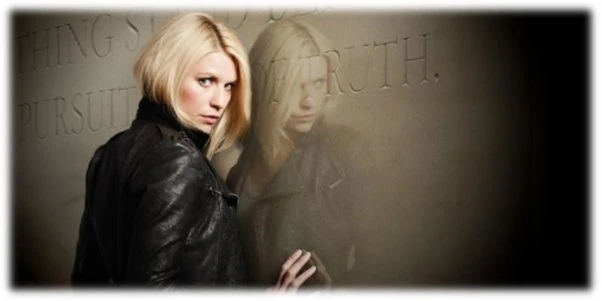
The net effect is to undermine Carrie's credibility - and, to be honest, the show's. Indeed, there are a lot of holes in the plot. Why would the CIA continue to employ someone as obviously unbalanced as Carrie even if she managed to suppress her actual diagnosis? If we are meant to believe that she is so clever, why would a trained agent be so foolish as to mount a private surveillance operation and then - breaking one of the basic rules of professional intelligence gathering, even if James Bond says otherwise - start an affair with the suspect? And why would said suspect be so easily seduced by a character played by Claire Danes when he was married to a character played by Morena Baccarin? This is no offence to Claire Danes - just look at Morena Baccarin...

Yet Homeland gets away with it, mainly through committed acting and skilled direction. There have been few shows better at building up tension. A scene with Brody and a "suicide vest" is a masterclass in suspense, even if the rational part of our minds is telling us that he is unlikely to leave the production at that particular moment. Homeland seems so authentic in the small things that the audience forgets, at least while it is on, how absurd it is in the big things.
By the end of the second season, however, events had reached a point where there could no longer be any more suspense about Brody, and Carrie's response was positively imbecilic. Despite that, the third season got off to a surprisingly compelling start before getting what can only be described as a complete "reboot" half way through in order to give Brody a redemptive exit.
This prompted a lot of speculation about whether Homeland could survive Brody? Or was Brody really gone for good in spite of overwhelming evidence that we was? The producers teased the audience by bringing Lewis back for a brief cameo.
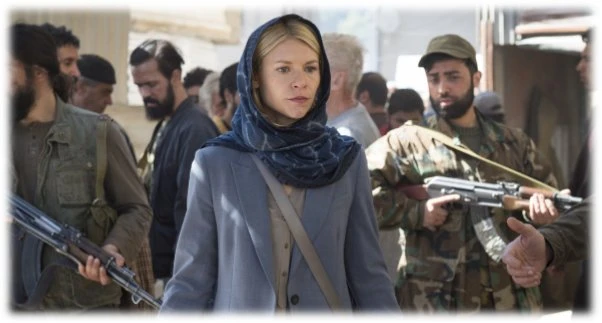
In fact, despite Brody being definitely very dead, season four turned out to be the best of them all - mainly because it seemed like a different show and Carrie was, to a great extent, a different character. We were now offered a far more credible tale of a high flying CIA officer and disengaged single mother serving as "the Drone Queen" in Kabul. Her condition is apparently under control, more or less, and, while there are allusions to her experiences in the three previous seasons, they seem to have made little difference to her career.
It was therefore a mistake to throw away that career, a good source of secondary suspense, as the fifth season found her working for a private sector Foundation in Germany. This offered two intriguing possibilities, an exploration of Islamic terrorism in Europe and a revival of the old Cold War spy thriller. It is disappointing that it pulled its punches and never really delivered on either.
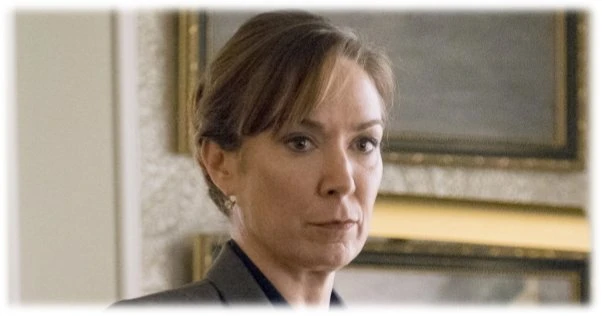
Season six was even more misjudged. It brings Carrie back Stateside as adviser to a Hillary Clinton-esque President-Elect, but she is distracted by sudden obsession with her daughter and trying to care for a friend, played by Rupert Friend, left a human wreck by events in Germany. This kinder, gentler Carrie had little in common with the driven, single minded character we had come to love - or at least admire - and the plot seemed like something out of a 1970s conspiracy thriller. As things turned out, it dated even more when the political events of 2016 contained more surprises than anything Hollywood could have imagined - not least the election of someone other than Hillary Clinton.
In much the same way, the seventh season struggled to catch up with the real world. Russian interference in American politics, both real and imagined, was then a fashionable issue, especially in Hollywood, so Homeland exaggerated it, in a manner ironically reminiscent of the "Red Scare" genre of the 1950s, even implying that them pesky Ruskies were responsible for a Waco-style massacre. It was a low point.
The eighth and final season took the sensible decision to take Carrie back to where the show did its best work, Afghanistan. By this stage her bipolar had apparently been cured and replaced by PTSD. Whatever the reason, she made one obviously bad decision after another. So did everyone else, but that was what we had come to expect from 'Homeland' - it did not matter if the entire US National Security apparatus messed up if we could rely on Carrie to come through in the end. Yet in the end it was Carrie who got stupid.
As the show declined, it wore its politics - the usual Hollywood politics - more and more on its sleeve. In the Homeland timeline, President Hillary was succeeded by a sort of Democratic version of Ronald Reagan, who was in turn succeeded by a very unflattering Hollywood cartoon version of George W Bush. There was no Barack Obama analogue.

The show presents America as blundering around the world like a clumsy giant, basically well meaning but incredibly ignorant. It must be said that there is a lot to support that point of view. Yet it must also be said that Hollywood projects like Homeland, in hitting the soft targets of the obvious problems caused when America acts like a hyperactive child, ignore those caused when America does nothing. The lesson of the 11th September, and of America's lack of response to the "Arab Spring," is that too light a touch is sometimes even worse than being too heavy handed. There was nothing wrong in Homeland aspiring to be more than a thriller, but it lacked the sophistication and understanding to be the intelligent political drama it wanted to be.
For all its absurdity, Homeland deserves to be remembered as an extremely entertaining show, as long as you were watching it and had no time to think about how absurd it was. It had good production values, some fine photography, and an outstanding cast, many of whom - including Lewis, Friend, and David Harewood - were British with American accents of variable authenticity.
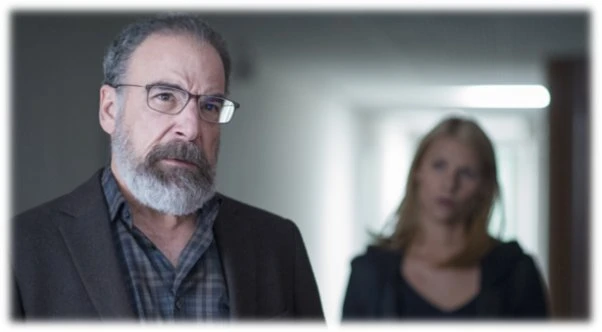
As usual in his projects, it was Mandy Patinkin, as Carrie's Rabbinical mentor who gave the eight seasons their spine, and their heart. His beard alone could outact the cast of a normal thriller. Equally predictably, the most intriguing character, a "black ops" specialist, was played by the great F Murray Abraham: for a man who is supposed to be the byword for an obscure Oscar winner, he has been memorable in almost everything he has done since. It is a pity that he seemed to disappear early. The same is true of the always enjoyable David Marciano whose appearance as a technology specialist raised hopes that his character would turn out to be significant, only to have Maury Sterling, playing his younger brother, Max, take over the tech role.
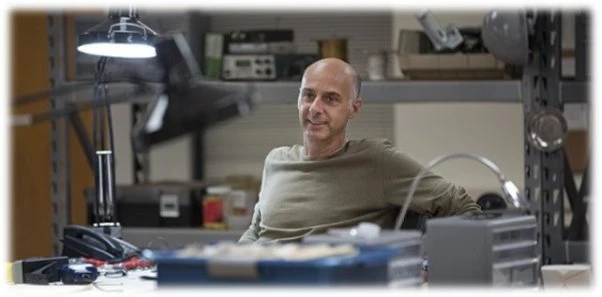
The actors can hardly be blamed if their characters seem inconsistent at times. They were written that way. As a producer, Danes herself has less of an excuse. It seemed that there were about four different Carries. At least one of them was very well done, a perceptive portrait of a career focused single mother who was good at her job and nothing else. She could have been one of the best female characters in television history, had she not been allowed to collapse into melodrama and ever increasing hysteria. For a supposedly feminist role model, she presents a surprisingly negative image of a strong woman in a position of great responsibility.
Perhaps it is unfair to be writing this review within a few hours of watching the last episode. In the depths of disappointment, it is easy to forget that Homeland had its glory days. Indeed, the disappointment is all the greater because it had the potential to be something really special.
Only a few days ago your reviewer was asked if it is worth watching all the way from the start - to which the answer is a definite "Yes," but best stop after the end of the fifth season, and the latter part of the third season can be skipped without much loss. Anyone who watches it that way might well conclude that it was a great show. As it is, it was always a compelling show and always a silly show, and for a long time it was compelling enough to hide the silliness.
Seen this show? How do you rate it?
Seen this show? How do you rate it?
Published on May 11th, 2020. Written by John Winterson Richards for Television Heaven.


